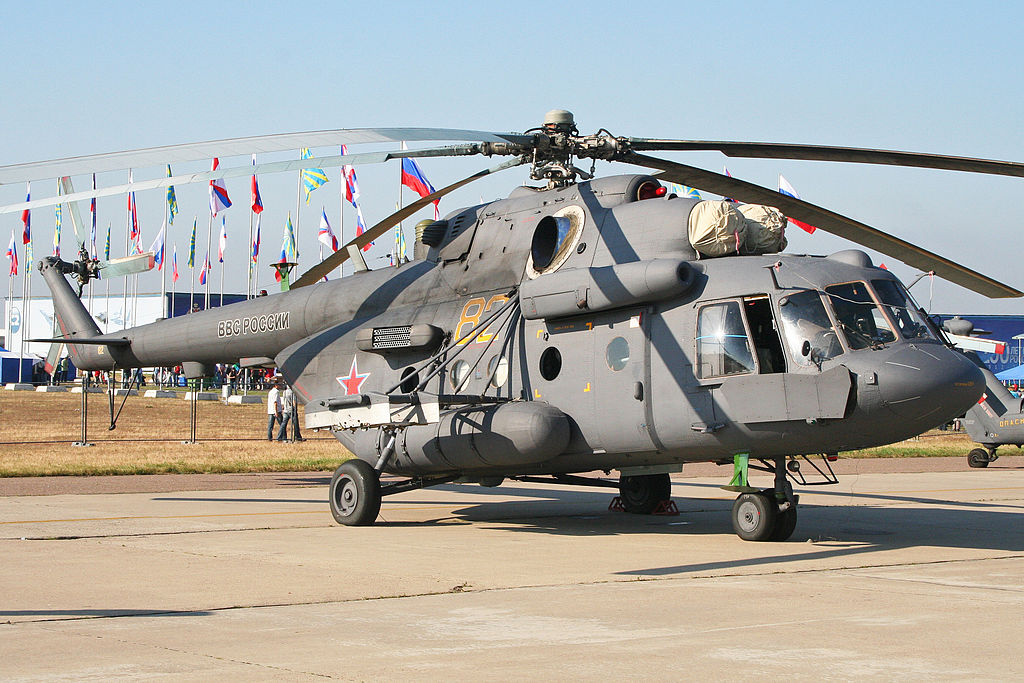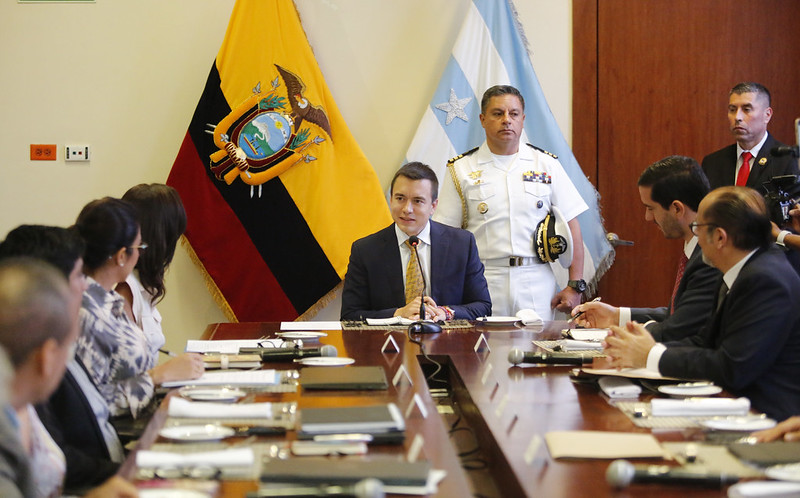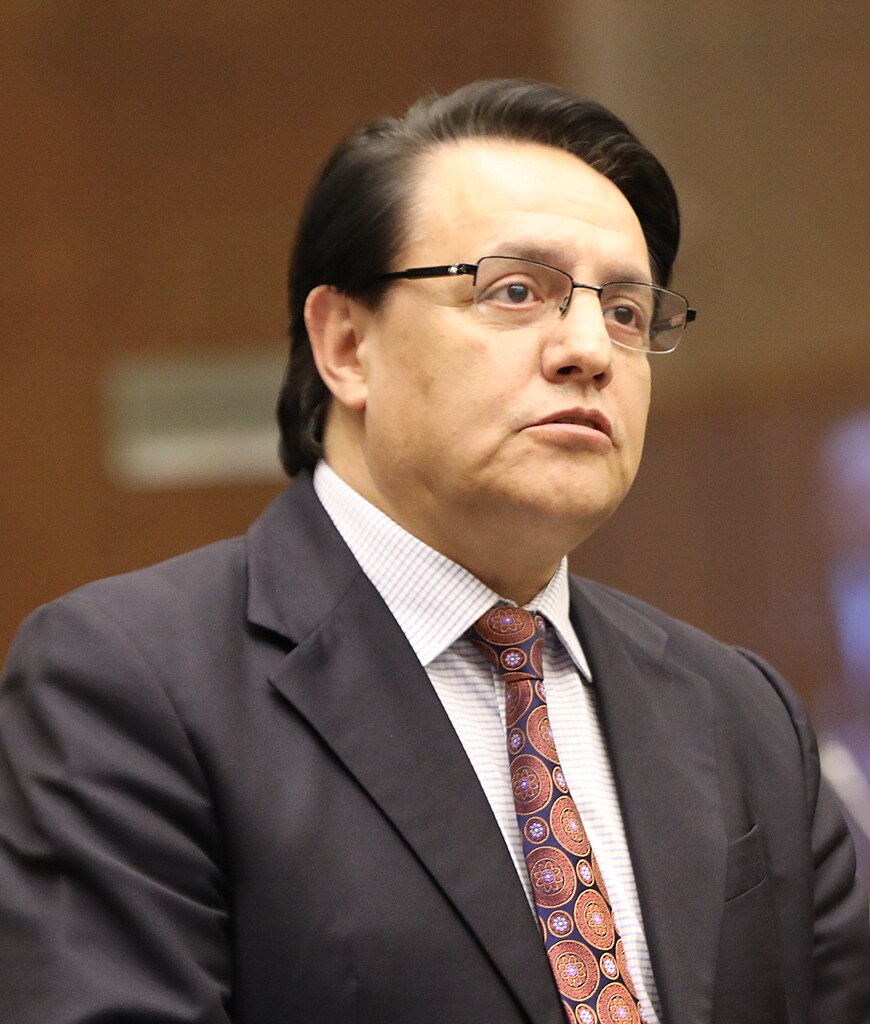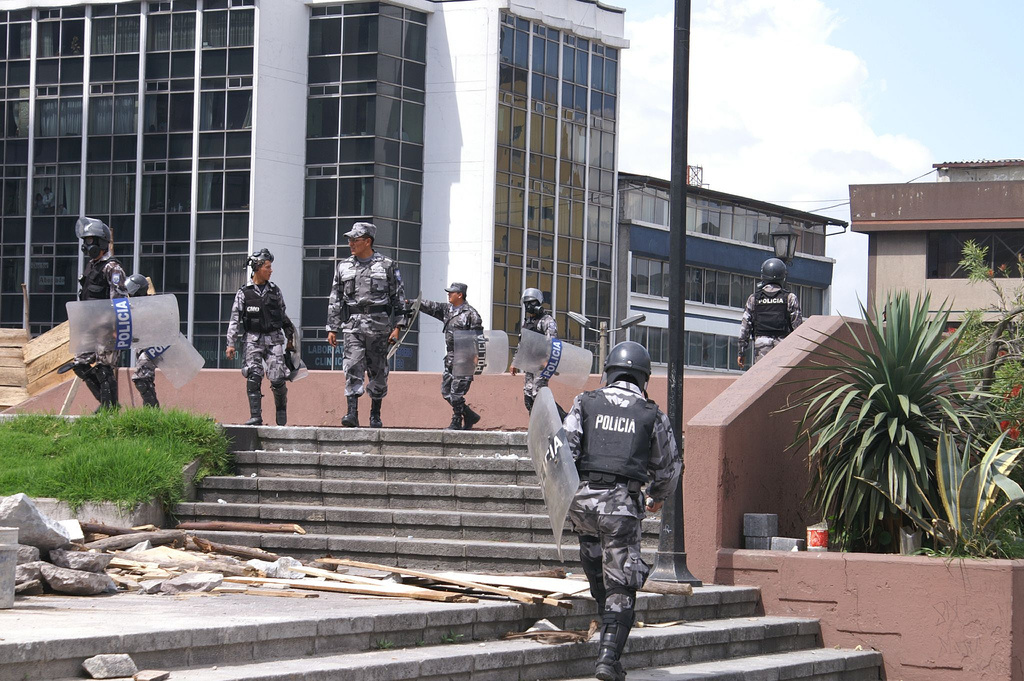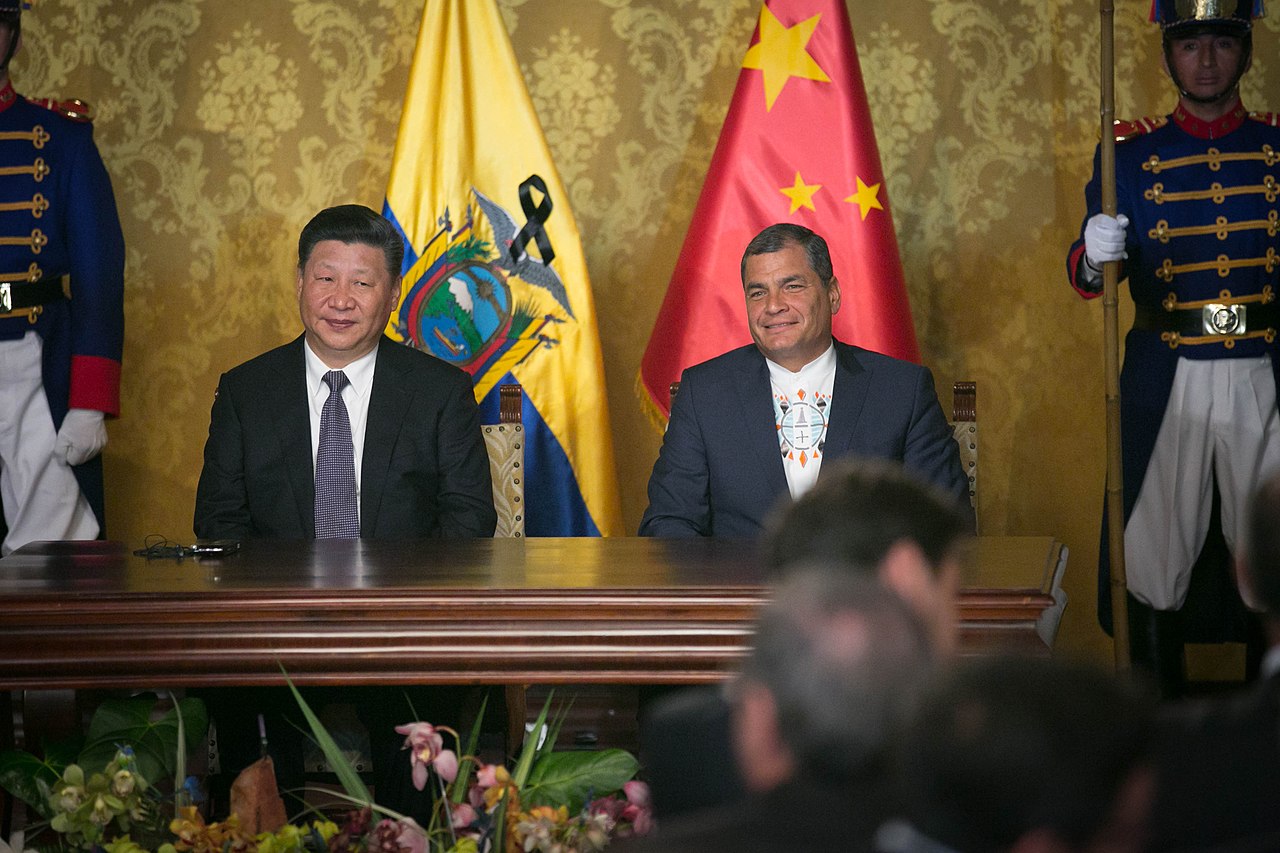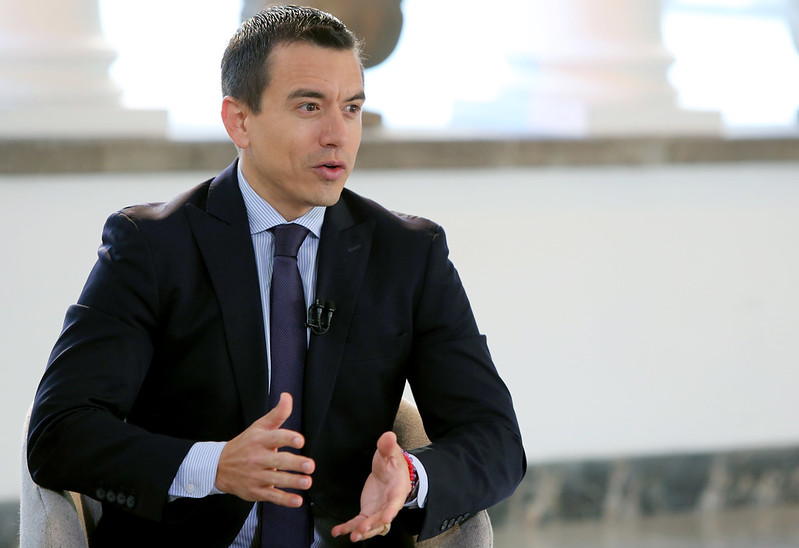
EcuadorianPresident Daniel Noboa has sought to project an image of being tough on crime and impunity. He has come under fire for authorizing the raid of Mexico’s embassy in the country.
“Glas was to receive safe passage from the Ecuadorian authorities allowing him to fly to Mexico City, but instead, Noboa ordered his immediate capture.”
Tensions between Ecuador and Mexico have been simmering since Mexican President Obrador questioned the legitimacy of Ecuadorian President Noboa’s election victory in October 2023. A short time later, in December 2023, Ecuador’s former Vice President, Jorge Glas, thrice convicted of corruption, exiled himself to Mexico’s embassy in Quito to avoid another prosecution.[i] According to the excerpted article in the Spanish daily El País, President Noboa gave the order to raid Mexico’s embassy and detain Glas. The trigger for the action appears to have been President Obrador’s decision to grant Glas political asylum, which the Noboa government argues would have served the cause of impunity. In response, as the article from El País reports, Mexico accused Ecuador of contravening the Vienna Convention and broke diplomatic relations. The regional outcry was swift, according to the second excerpted article from the Argentine daily Clarín. Nicaragua immediately broke relations with Ecuador, while other countries expressed grave concerns, rebuked Ecuador’s actions and threatened to rupture their own bilateral relations. At the center of the debate appears to be the interpretation of the inviolability of embassies in the Vienna Convention and the need to balance with the Caracas Convention, which states that political asylum cannot be abused by those already convicted in competent domestic courts. The nature of the Noboa government’s raid on Mexico’s embassy and the uproar of condemnation has impacted the entire region. Latin America has fractured along familiar political lines in response to the raid, with leftist governments generally taking Mexico’s side and moving to sever relations with Ecuador, and governments ruled by the right decrying Ecuador’s actions while emphasizing Mexico’s abuse of asylum procedure. Many countries have observed others’ responses as a litmus test for their own sets of bilateral relations.[ii] For Noboa’s part, domestic politics likely drove much of the decision-making, as a truncated presidential term and the country’s security crisis have led him to project an image of tough-on-crime. Glas’ connection to organized crime, and foreign criminal organizations driving some of Ecuador’s surge in violence, made the decision to seize him politically popular among Ecuadorians.
OE Insight Summary:
ECU government raid of MEX government embassy in Quito has sent regional relations spiraling and generated conversations about the appropriate use of granting political asylum.
Sources:
“México rompe relaciones con Ecuador tras el asalto policial a su Embajada en Quito (Mexico breaks relations with Ecuador after the police assault on its Embassy in Quito),” El País (Spanish daily with excellent regional coverage), 6 April 2024. https://elpais.com/mexico/2024-04-06/mexico-rompe-relaciones-con-ecuador-tras-el-asalto-policial-a-su-embajada-en-quito.html
Mexico has broken relations with Ecuador. The measure was adopted after the Ecuadorian police attacked the Mexican Embassy in Quito with armored cars and masked agents…and forcibly took away former vice president Jorge Glas, who hours before had received political asylum from the Government of Andrés Manuel López Obrador…In the following hours, Glas was to receive safe passage from the Ecuadorian authorities allowing him to fly to Mexico City, but instead, Noboa ordered his immediate capture.
“La canciller de Ecuador afirma que México violó primero las normas diplomáticas: ‘Hubo incumplimientos y respuestas negativas’ (The Foreign Minister of Ecuador affirms that Mexico first violated diplomatic norms: ‘There were non-compliance and negative responses’),” Clarín (Argentine daily that covers most of Latin America), 8 April 2024. https://www.clarin.com/mundo/canciller-ecuador-afirma-mexico-violo-primero-normas-diplomaticas-incumplimientos-respuestas-negativas_0_ozE6HjUzaH.html
For Mexico, Ecuador violated the Vienna Convention, which has some 115 countries, and which regulates relations between states through treaties. It is considered one of the main sources of international law and its compliance is mandatory for the states that have ratified it…In response, [Foreign Minister] Sommerfeld noted that Mexico did not respect Article 1 of the Montevideo Convention of 1933 or Article 3 of the Caracas Convention of 1954, regarding the fact that it is not lawful to grant asylum to people accused of common crimes, as was the situation of Glas in a case for alleged embezzlement of funds in the reconstruction of the province of Manabí after the 2016 earthquake.
Notes:
[i] President Noboa is grappling with a surge of gang-related violence, and Glas stands convicted of corruption, including links to transnational criminal organizations. For more information on the origins of Ecuador’s insecurity crisis, see: Ryan C. Berg, “President Lasso Calls for ‘Plan Ecuador’ Amid Growing Security Concerns,” OE Watch, December 2021. https://community.apan.org/wg/tradoc-g2/fmso/m/oe-watch-articles-2-singular-format/400849
[ii] For more information on how the international fallout could negatively impact the Noboa government, see: James Bosworth, “The Mexican Embassy Raid in Ecuador Will Backfire for Noboa,” World Politics Review, 8 April 2024. https://www.worldpoliticsreview.com/ecuador-mexico-embassy-corruption/
Image Information:
Image: EcuadorianPresident Daniel Noboa has sought to project an image of being tough on crime and impunity. He has come under fire for authorizing the raid of Mexico’s embassy in the country.
Source: https://www.flickr.com/photos/presidenciaecuador/53497882306
Attribution: PDM 1.0 DEED.

